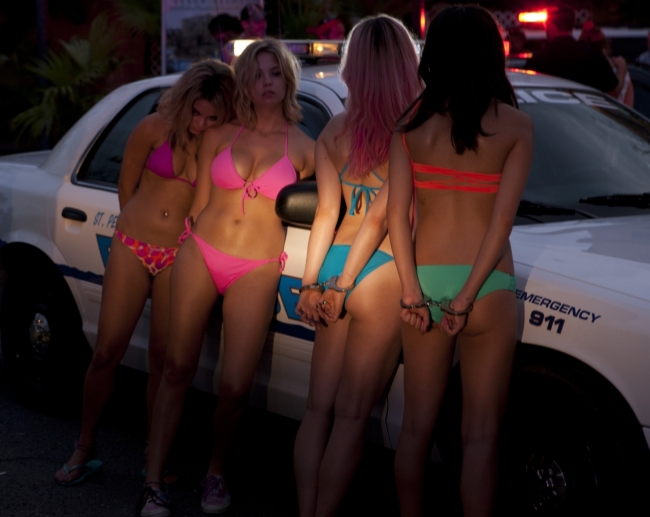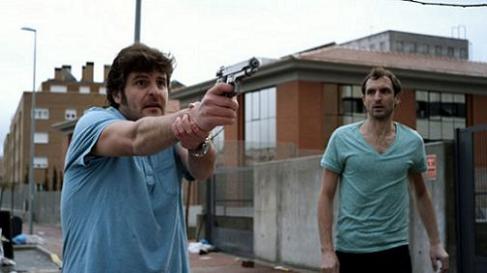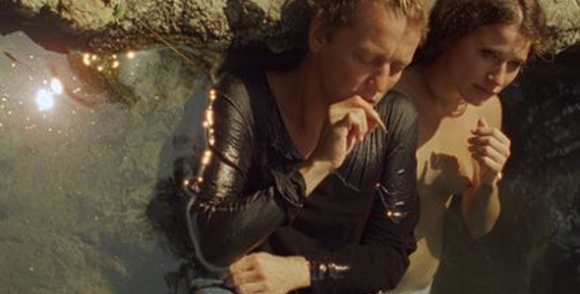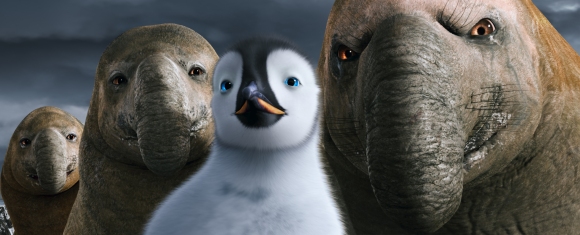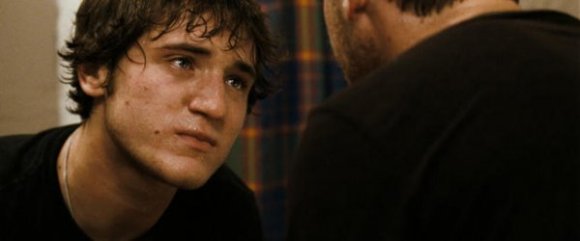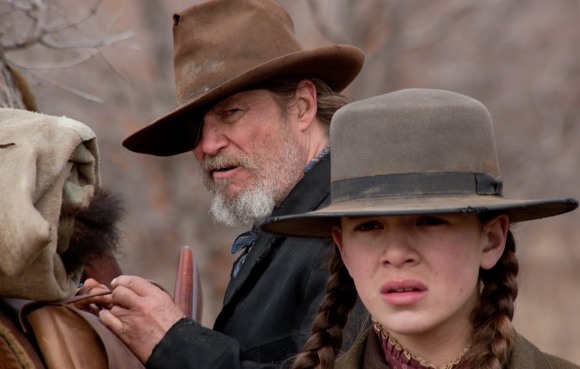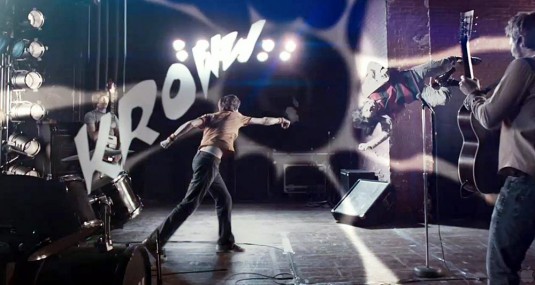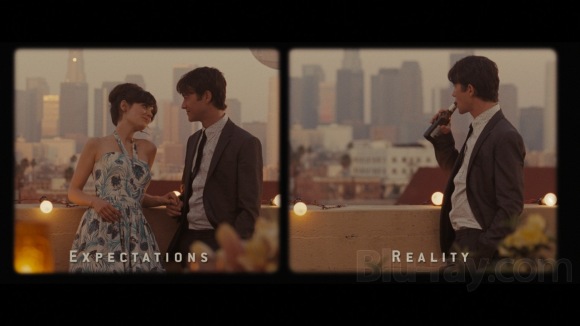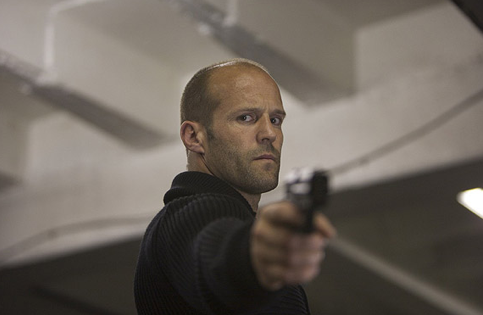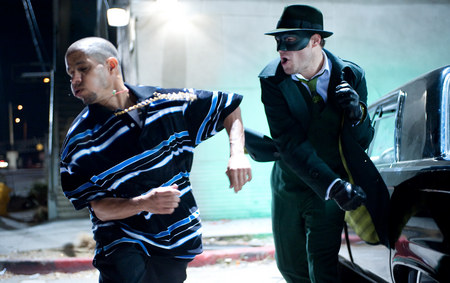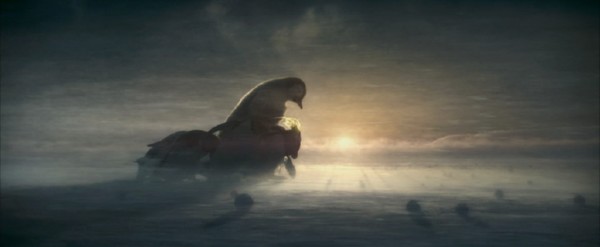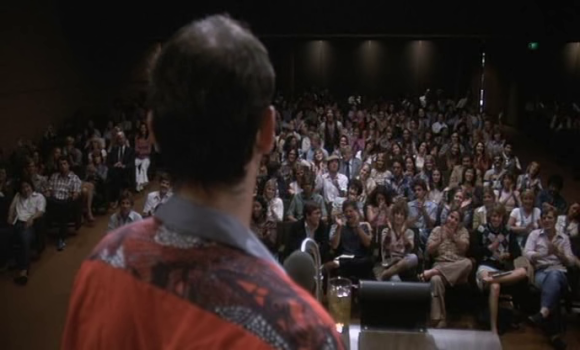
So, okay. Yeah, stuff happened. Shit went down in the pound, and shit. My life is one of constant flux, and order out of chaos. But, here I am, again. Like the gnat in your ear that lays eggs in the canal, reminding you that armchair film-critics with long-winded opinions about movies won’t go away. We can never really die, because we are immortal, and part of the neo-spiritual ephemera created by cyberspace.
So, alright. To start off, here’s a list of films that will be receiving some type of review in the very near future, as I stretch my finger-bones again and get back into the mood of things. These are some of my favorite films, for one reason or another, that I’ve seen in the long span of time that I’ve been gone – the reasons for which are many, but they primarily involve women, money and some variation on those two themes. More on that later, if there’s interest.
Drive (Nicolas Winding Refn) – Such a visceral piece of cinema. It really is the only film I can think of in recent memory where the term “hallucinogenic” can actually be applied without not meaning anything. A punch to the gut, a throwback to those economically paced car chase films of the seventies, a minimalist representation of the Man-With-No-Name archetype (or, one who tries his best to be that archetype, despite all appeals to sanity and the contrary that the film makes along the road), a dream on film that slowly, almost imperceptibly shifts into a nightmare. Violence bursting in at the edges, and then crashing through, unannounced and unwanted, but unavoidable – and for the main character, inevitable. Enough has been said about this already, but I’m going to give it a shot. I’m saving all of my creative genius-juice up for it, however. I have an extra testicle that I keep it in, that this film made me drop.
The Artist (Michel Hazanavicius) – It’s a film that’s entirely reliant on its gimmick, but it’s also a joy to watch. Yes, it’s story is as old as cinema, but that’s kind of the point – it’s a framework for experimentation and a tribute to, not just silent cinema, but cinema in general. It’s simplistically plotted, almost to a fault, but the emotions ring true. Also, very few have made note of the implicit element of parody in the film, and I want to write something about that.
Tree of Life (Terrance Malick) – Probably Malick’s most divisive movie, and that’s saying a lot. It’s a three hour tone poem about man’s place in the scheme of the universe, about the relationship between the micro and the macro – hefty things to attempt in any medium, but if there was any filmmaker who could take those bold, and yet vague, ambitions and turn them into something beautiful, it’s Malick.
The Dark Knight Rises (Christopher Nolan) – I’m probably going to come out on the opposite side of history on this one, when all is said and done. After the second film, it is kind of a let-down. There are too many unnecessary elements to what could’ve been one of the most bold proclamations of cinematic spectacle, and Batman, put on screen in the last decade – why the nuclear bomb subplot when the revolutionary narrative angle was more than enough, and was more thematically interesting? Why the last minute reveal about JGL’s character? – but, for all that, there are moments of real brilliance interspersed throughout that make it a worthy successor to its predecessor. It is bold and ambitious, and I applaud and feel more forgiving of a film like this that genuinely shoots for the stars and misses by this much than one that aims true for the cement.
The Avengers (Joss Whedon) – There’s not really much to write about this other than, “Dude, Captain America! Iron Man! Hulk! Together! On Screen! So awesome! And they’re fighting! So awesome! Sooooo awesome!” Which, to be fair, is essentially the reaction it was trying to garner, and it succeeds with aplomb, although Whedon’s style and personality could do to shine through a little more. Very fun stuff.
Captain America (Joe Johnson) – A study in how not to structure an origin story, and also how to make superheroes really, really boring. I’m not even one of those guys who has a problem with Captain America from a political standpoint – in fact, I think he was used perfectly in The Avengers – but, good god. This was maddening.
Thor (Kenneth Branagh) – Grand, Shakespearean opulence was never done so well as when Kenneth Branagh made it his own. Falls into narrative narcolepsy once Thor hits Earth, but every bit on Asgard is inspired, over the top, and sometimes appreciatively goofy. Tom Hiddleston as Loki is inspired casting. More on this later.
The Master (P.T. Anderson) – I’ve yet to see it – a problem which will be remedied shortly.
Cabin In The Woods (Drew Goddard) – Probably one of the more interesting films to come out of the “post-modern” school of thought since Scream. It also seemed like, near the end, that the film took a lot of inspiration from the SCP creepypasta series that have made the rounds of the internet since their inception some years back. It also has probably one of the moments I’ve laughed the hardest at in a movie, this year – it involves a motorcycle and a holographic wall. If you’ve seen it, you know what I’m talking about.
Cosmopolis (David Cronenberg) – Worst movie I’ve seen this year. That sounds hyperbolic, but it really isn’t. This was just terrible. It’s like a parody of the kind of movie that a nihilistic philosophy major in college would write – or, of a David Cronenberg movie, really. It’s just so monotonous, and with such a long-winded tonal drawl that it feels almost like it was intentional (and maybe it was). The only moment the film really came alive for me was a brief, three second shot near the end when Pattinson’s character swaggers down a dark alley, half-crazed with a gun in his hand. That moment had the kind of by-the-cajones feel that I expected the entire movie to have – not to make a judgment on the film based on prior expectation or anything, but it probably would’ve been for the best.
Killer Joe (William Friedkin) – Just a lot of fun. Especially for a Dallas local, like myself. So much unfortunate familiarity, so much sight-spotting. I don’t want to encapsulate this film too much as I am going to write up something larger on it pretty soon, but I really loved how Friedkin and Letts were able to use the charming, clean-cut “Matthew McConaughey” persona that he’s built up for himself over the years and stretch it just a little bit to the left into something genuinely terrifying. Inspired casting choice.
Chronicle (Josh Trank) – It’s AKIRA: The Movie. There, I said it. That being said, however, it was also really enjoyable and intriguingly done, although the handheld camera framework is kind of unnecessary at the start of it and only becomes moreso as the film progresses. As AKIRA movies go, this looks like the only one we’re going to get, and it’s a perfectly fine rendition thereof.
Detention (Joseph Kahn) – I loved this movie. Tons of fun. More to come on this one. Too much for a few sentences worth.
Moonrise Kingdom (Wes Anderson) – My brother and I have always said that one of the reasons that Wes Anderson’s recent films have failed to have any effect on us is that they’re essentially children’s films with adult characters, and while that’s something you can do with some very real and interesting success, it’s not something he can pull off quite so well anymore. Here, he makes a genuine children’s film, a fable about young love and individuality filtered through the pastels of adolescence, with ideas about burgeoning sexual identity and finding one’s place, and with his candy-colored visual aesthetic it just fits so well that it’s really, probably, one of my favorite films of this last year. Very affecting, and moving, and the end is one of the few to have me clapping at the end of it – the other being one that’s two spots down.
Prometheus (Ridley Scott) – I fell asleep during this, initially. After his first two films, Ridley Scott has developed for himself a really droney style that kind of acts as a go-to narcotic for me. There’s a lot of pseudo-philosophical ideas about Creation, and the concept of god, and how our place in the grand scheme might not be what we at all expect, and that’s all fine and potentially interesting, but they’re grafting it onto the framework of a series that has never been that before – and you say, Henry, it’s not an Alien film, it’s just in the same universe! And, you’d be right. But now it’s a piece of the mythology. It’s part of Ridley Scott’s personal canon for his original film, and it’s unecessary. The Alien films are slasher movies, or haunted house movies more like, in space. I mean, that’s it. And, as it stands, there’s not really a lot of room left for innovation. Interesting ideas struggle to breathe in this, suffocated by Lindelof’s need to please the fans. Set-pieces are anti-climactic and dumb. The whole film looks fakey and grey in that boring sepia color-correction scheme that seems to be the industry standard, now.
Safety Not Guaranteed (Colin Trevorrow) – And, this is the second one. This is just a beautiful movie, near the top of my list for the year, and not at all the piece of hipsterism promised by both its ad campaign or the presence of Aubrey Plaza. This had both myself and the girl I went with in tears of joy and excitement by the end of it, and that’s saying quite a lot. More to come on this, later on. I don’t want to blow my wad on it too much.
Elena (Andrey Zvyagintsev) – Another film I haven’t yet seen, but intend to. It looks brilliantly moody, from the trailer.
John Carter (Andrew Stanton) – It’s very pretty to look at, and occasionally exciting, but there’s a reason this movie failed, and his name is Taylor Kitsch. He is wood. More on that later.
The Amazing Spider-Man (Marc Webb) – I liked this a lot initially, but the more I thought about it, the worse my opinion of it became. There’s a lack of necessity that’s felt throughout the whole film, and it just reverberates so loudly in the changes they decided to make, just for the sake of it, without any regard to emotional or narrative consistency. I’m not a huge stickler for films sticking so close to their source material that they can’t breathe as works on their own, but guys – there’s a reason the Uncle Ben arc works so well. It kind of needs to be there, and in a much larger way than how it was presented. It has barely any impact at all. That said, I did enjoy the character arc they gave Peter Parker, in this – his gradual move away from vigilantism into genuine heroism, and his understanding of his place within the makeup of the city, and his relationship with Gwen – and the action sequences, which are far more “Spider-Manny” than anything Raimi ever accomplished. But really, to get Spider-Man better than Raimi did, and thus grant this film any reason to exist at all, this film needed a really dark, kinky streak of Jay-Z or Mos Def, or any of those New York rap luminaries, in its hairline. Alas, Marc Webb, your name held so much hope.
The Intouchables (Olivier Nakache & Eric Toledano) – This year’s “inspiring foreign film” is, surprisingly, genuinely inspiring, and a lot less trite than I thought it would be. Directed with no great thought toward mis-en-scene, the real gem of the movie is the relationship at the core of it, which is portrayed beautifully. I don’t understand why they made the caretaker black, though. I mean, if it were a fictional film, I could understand it, but. . .he was a real guy. And, he was white. He is very good in the role, though. Don’t misunderstand. I’m just curious.
Project X (Nima Nourizadeh) – Really quite fun, and harkens back to a time when teenagers still had house parties like this (yes, they did exist, though not to this extent). Not a lot to it once you get past the surface, but it’s shot surprisingly well for something that looks like was conceived over two fortnights. Also genuinely surprised at the scope of the party. It becomes a really visceral action film at the drop of a hat, and in that change, it wins my heart.
Comic Con Episode IV: A Fan’s Hope (Morgan Spurlock) – It’s a Morgan Spurlock documentary about Comic Con. It’s what you expect. And yet, it’s also very enjoyable, and heartwarming, and oh look, there’s Kevin Smith. I wonder how long it will take until he starts telling everyone about how he worked on the Superman Lives script that one time.
Battleship (Peter Berg) – Two big-budget bombs under his belt only months apart. It’s well deserved. Everything about this film is just so. . .dumb. It has no understanding or even a cursory knowledge of the science its film is concerned with. Every character is a cliche that acts like a wind-up toy set on a predetermined course, and things just start happening for no real reason at all. And seriously Taylor Kitsch, you’re just the worst.
